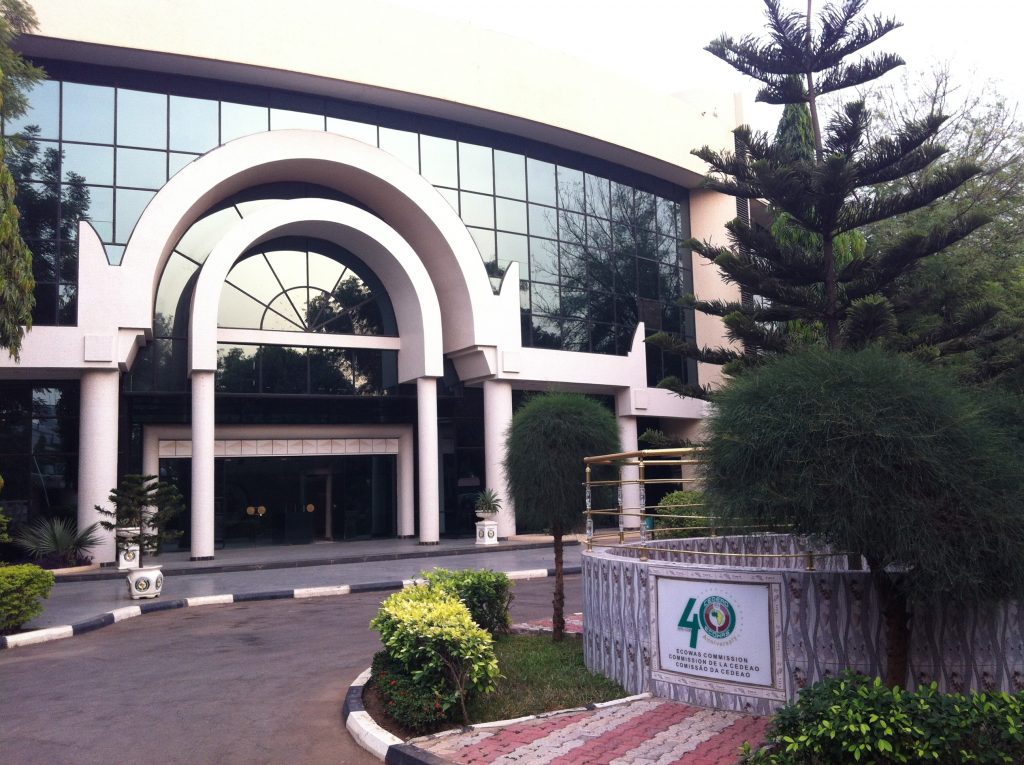ECOWAS at 45 and Counting: Making Sense of West African Regional Agency in Global Politics
Emmanuel Balogun (Skidmore College) & Jens Herpolsheimer (Leipzig U)

Concept Note
This workshop aims to take stock of both the evolution of ECOWAS and the advances in the scholarship. To this end, we seek to bring together international scholars that engage with ECOWAS in their research, initiating a discussion on developments in the empirical, theoretical, and conceptual study of ECOWAS. The aim of this workshop is to survey existing research on ECOWAS, and inquire on where future research might take us. Our intention with the workshop is to convene a special “state of the art” journal issue.
Since the late 1990s, the amount of academic literature on the organization has steadily increased, focusing especially on regional governance, peace and security, most importantly the ECOMOG experiences in the 1990s and early 2000s, but more and more also covering a wide range of other fields of cooperation, such as for example trade, finance, energy, migration and health. Moreover, academic literature on ECOWAS has been complemented by a broad range of policy literature, produced by Western development agencies and think tanks, based both in and outside Africa.
We are organizing this workshop based on a few observations regarding existing literature and research on ECOWAS. First, while offering valuable insights and in some cases great empirical detail, much of existing work on ECOWAS has remained largely descriptive. Our workshop invites participants to reflect and take stock of the conceptual and theoretically-inspired contributions, which are still rare, although recent years have seen improvement in that regard.
Second, in many cases, ECOWAS has been treated like a unitary actor or a black box, thereby obscuring its character as a complex collective actor, coming together from multiple actors ‘within’ and ‘around’ the organization and through different forms of agency. Therefore, the workshop aims to move closer to a better understanding of these actors and forms of agency, as well as the multiple, interrelated processes, practices, norms and informal rules. Third, despite increasing scholarship on African Peace and Security, in comparison to research on the African Union over the last decades, ECOWAS remains relatively neglected. This is both remarkable and worth changing, considering the influential role that ECOWAS and its member states play as one of the biggest ‘sub-regional’ blocs, both within the African Union and the African Peace and Security Architecture (APSA). Consequently, the workshop aims to propel research on ECOWAS, also with a view to improving our understanding of its role in larger, regional and inter-regional efforts and dynamics to build peace in Africa and beyond it.
Programme
Introduction
10:00 am – 10:45 am
Welcome and Introductions
Emmanuel Balogun (Skidmore College) & Jens Herpolsheimer (Leipzig U): ECOWAS at 45: Some Observations on the State of Research
— Break —
Session 1
11:00 am – 12:30 pm
Simone Schnabel (Peace Research Institute Frankfurt, PRIF): Legitimizing African Regional Organizations: The Role of Local ECOWAS Structures
Jens Herpolsheimer (Leipzig U): Everyday Practices of Inter-Regionalism at ECOWAS
MaryAnne Iwara (Institute for Peace and Conflict Resolution, Abuja): A Critical Assessment of ECOWAS’ Concept of Integration through its Member-States and Community Institutions
— Break —
Session 2
1:30 pm – 3:00 pm
Sahil Mathur (American U): Punish, Assist, or Reprimand? ECOWAS Responses to Intrastate Political Crises
Jo-Ansie van Wyk (U of South Africa): The ECOWAS Council of the Wise: Purpose, Practice and Peace Efforts
Emmanuel Balogun (Skidmore College): Visibility and Legibility in the ECOWAS Communities of Practice: Capacity-Building in ECOWAS
— Break —
Concluding Discussion
6:00 pm – 7:00 pm